IATA has formally launched the Aviation Carbon Exchange (ACE), a platform for airlines and other aviation stakeholders to offset their carbon footprint by purchasing credits in certified projects. Carbon reduction programmes on ACE include forestry projects, clean wind energy operations, protection of eco-systems and remote community-based projects to cut emissions. The platform has been under development since the beginning of the year and is aimed at providing a tool for airlines in fulfilling their offsetting obligations starting in 2021 under the ICAO CORSIA scheme. The impact of Covid-19 on the airline industry and a change to the CORSIA baseline means offsetting under the scheme is now unlikely to be required for at least several years but ACE will still be open to airlines wanting to invest in voluntary offsets. ACE was developed in conjunction with commodities trader Xpansiv CBL Holding Group and US carrier JetBlue has completed the first trade.
The Aviation Carbon Exchange becomes the first centralised, real-time marketplace to be integrated with the IATA Clearing House (ICH) for the settlement of funds on trades in carbon offsets. With an annual turnover of around $56 billion, IATA says the ICH provides a fast and secure billing and settlement services for the air transport industry and will ensure that ACE can guarantee payment and delivery of carbon credits.
Although ACE was conceived as a CORSIA tool, IATA still foresees a demand from airlines that have set net-zero emissions targets and those wishing to offset domestic operations, which are outside the scope of CORSIA.
“Airlines are serious in their commitment to reduce emissions. And they need a reliable tool to access quality carbon credits in real time,” said Director General Alexandre de Juniac at the IATA Annual General Meeting held virtually this week. “ACE will be a key tool helping airlines efficiently manage these important transactions.”
Added Sebastian Mikosz, IATA’s SVP for Member and External Relations: “ACE gives airlines access to top quality carbon offsetting schemes in real-time with full transparency. CORSIA is a key enabler of our long-term strategy to reduce emissions to half of 2005 levels by 2050, and this new platform will be of enormous benefit to our members and other industry stakeholders.”
In the first trade on the exchange, JetBlue purchased an undisclosed number of credits in the first phase of the Larimar wind farm project in the Dominican Republic, which began development in 2015 and when completed is expected to reduce average emissions by more than 200,000 tonnes of CO2 per year.
“Our planet is physically changing, as are the expectations of our customers, crew members and investors,” said Robin Hayes, CEO of JetBlue. “While our industry’s short-term priorities are focused on Covid-19 recovery, now is the time to rebuild operations in more sustainable ways such as adopting sustainable aviation fuels and setting clear strategies to reduce net aviation CO2 emissions. The Aviation Carbon Exchange will help us continue to meet our climate commitments by providing simplified and transparent access to legitimate, third-party certified carbon offsets.”
During the AGM, Hayes was appointed Chair of the IATA Board of Governors and his airline will host next year’s AGM in Boston. Also announced was the stepping down of Alexandre de Juniac as Director General and he will be replaced in April 2021 by the former CEO of International Airlines Group, Willie Walsh.
In a revised outlook for airline industry performance in 2020 and 2021, IATA expects the sector to experience a net loss of $118.5 billion in 2020, deeper than forecast in June, to be followed by a net loss of $38.7 billion next year. Passenger numbers are expected to plummet to 1.8 billion, 60.5% down on the 4.5 billion passengers in 2019. This, it says, is about the same number as carried in 2003. International markets have been hit disproportionately harder than domestic markets, which have been propelled by a recovery in Russia and China.
IATA’s Director of Environment, Michael Gill, told this week’s ICAO Green Recovery virtual seminar that the sector’s global CO2 emissions in 2020 would be around 330 million tonnes, a level last seen in 1977.
Meanwhile, Aviation Carbon Exchange’s partner CBL announced record volumes this week, having traded 25.2 million voluntary carbon offsets in the year-to-date, an increase of 235% over the same period in 2019.
Photo: First offset trade on ACE – the Larimar Wind Farm project in the Dominican Republic



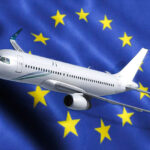
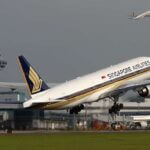
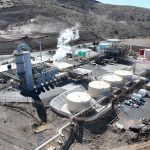
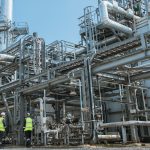
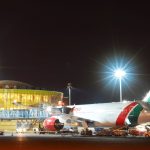
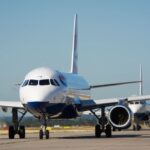
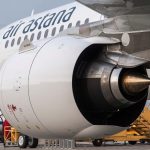

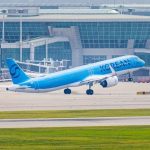


More News & Features
COMMENTARY: Why China’s national carbon market is unlikely to include aviation in the near term
International airlines face major CORSIA offset costs from 2027, says IBA
Carbon credit supply crunch puts CORSIA compliance by airlines at risk, warns report
Eight nations unite to propose taxing premium class fliers, sparking airline industry anger
ICAO “deeply concerned” over proposals to raise global climate finance through international levies on aviation
Carbon project developers warn of a supply shortage of CORSIA eligible credits